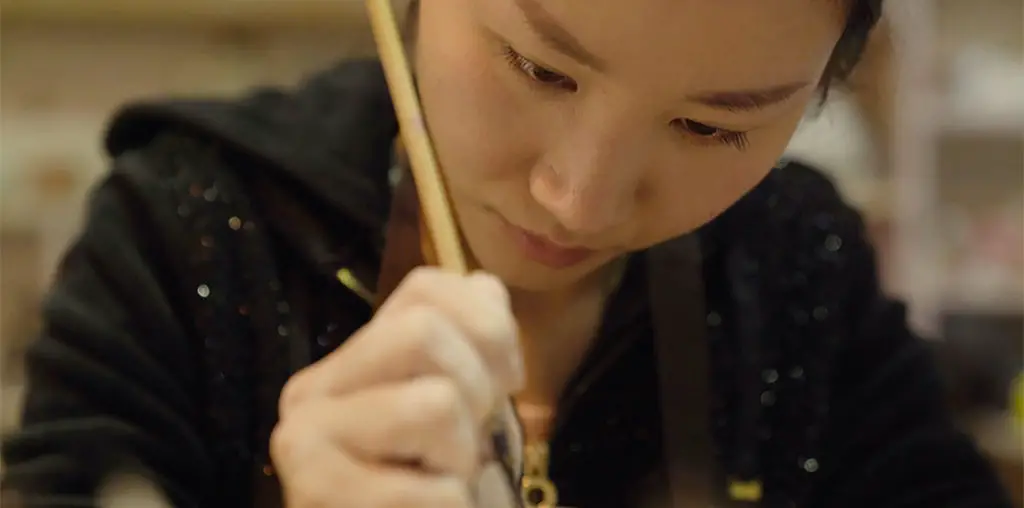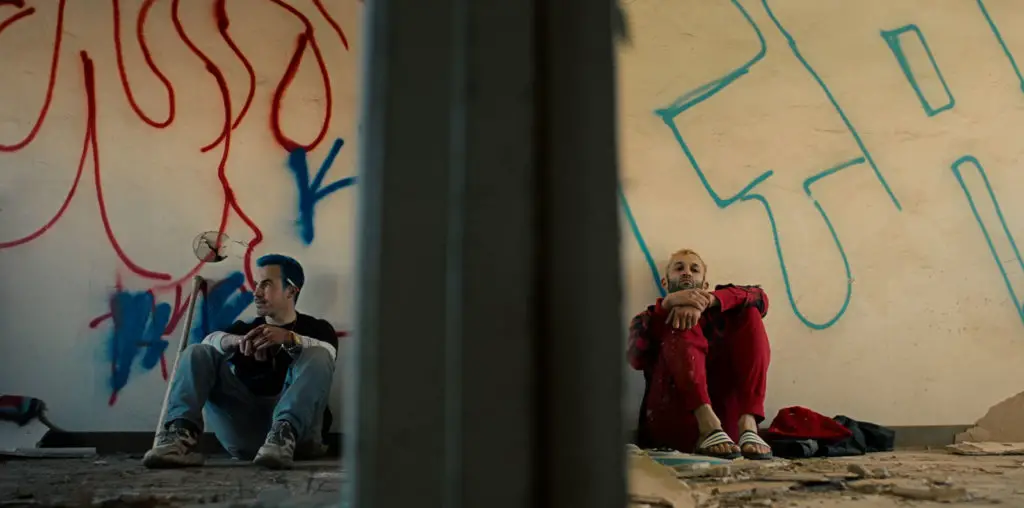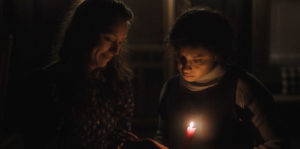
In the aftermath of World War II, there wasn’t much for a soldier in the United States Army to do other than complete their service and get themselves back home. But when they finally managed to return to civilian life, the fight really hadn’t ended — they brought the battlefield back with them. This confrontation between the realities of war — both on the frontlines and on the homefront — is at the heart of Colin Henning’s Appalachian Dog, where the desire for what was clashes against the realities of what is, and the idea of home is one of the final casualties of war.
Teddy Henry (Henning) was a tailor before the war. On the eve of his return home, his seamstress wife Marion (Georgia Morgan) organizes a little ‘welcome home’ get-together with their mutual friend Cate Wills (Brooke Elizabeth) and Marion’s new seamstress partner Peggie Darrow (Hayleigh Hart Franklin). But when Teddy arrives, armed with a new pair of glasses and ever-mounting standoffishness, the night soon unravels. After he discovers his beloved dog had passed away while he was deployed and that the status quo of how he and Marion had run their business prior to his leaving has now been upset by a number of increasingly alien factors, the gulf between Teddy and Marion seems to be ever-increasing. But even this state of affairs isn’t as cut and dry as it seems, as everyone struggles to maintain some semblance of control over the course of their lives.
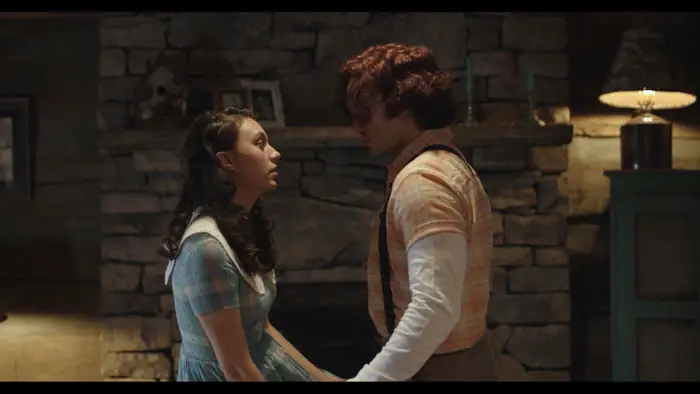
“After he discovers his beloved dog had passed away…the gulf between Teddy and Marion seems to be ever-increasing.“
But the premise of Appalachian Dog is just as deceiving as its characters. As its simmering domestic drama is slowly infused with a morbid “comedy” of uncomfortableness, the film provides the perfect framework for its modern take on the Southern Gothic subgenre. Every moment we spend with these characters, we increasingly realize just how much baggage each of them hides behind facades of normalcy. These efforts result in a mounting slew of uncanny interactions that shatter the boundaries between the era’s decorum and what these people all want for their lives. And while I have seen my fair share of post-World War II dramas — as well as consumed a sizable stack of Southern Gothic literature — I have rarely seen such a striking combination executed in such an understated manner.
What struck me most consistently throughout Appalachian Dog was that it possesses all of the tropes that make Tennessee Williams’s play A Streetcar Named Desire so compelling. It’s a ballet of personalities, where the efforts of those attempting to be the most domineering end up directly leading to the sharpest and most tragic of downfalls. But there isn’t any righteousness or catharsis in these descents — everyone is a mangled menagerie of pieces, and they’re all just trying to get themselves through life. But, as we know, the road to Hell is paved with good intentions, and yet the intentions on display here aren’t always that good.
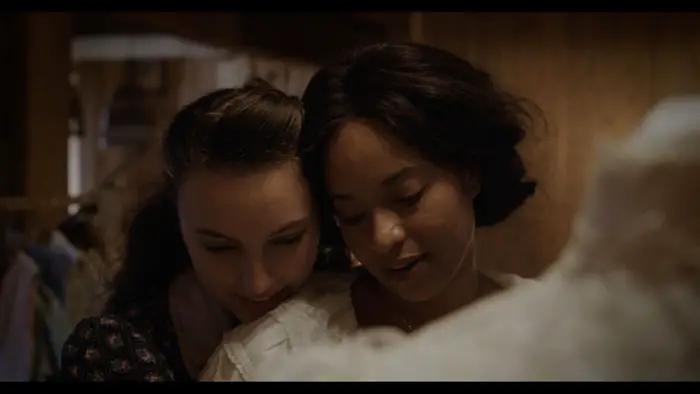
"…desire for what was clashes against the realities of what is..."
